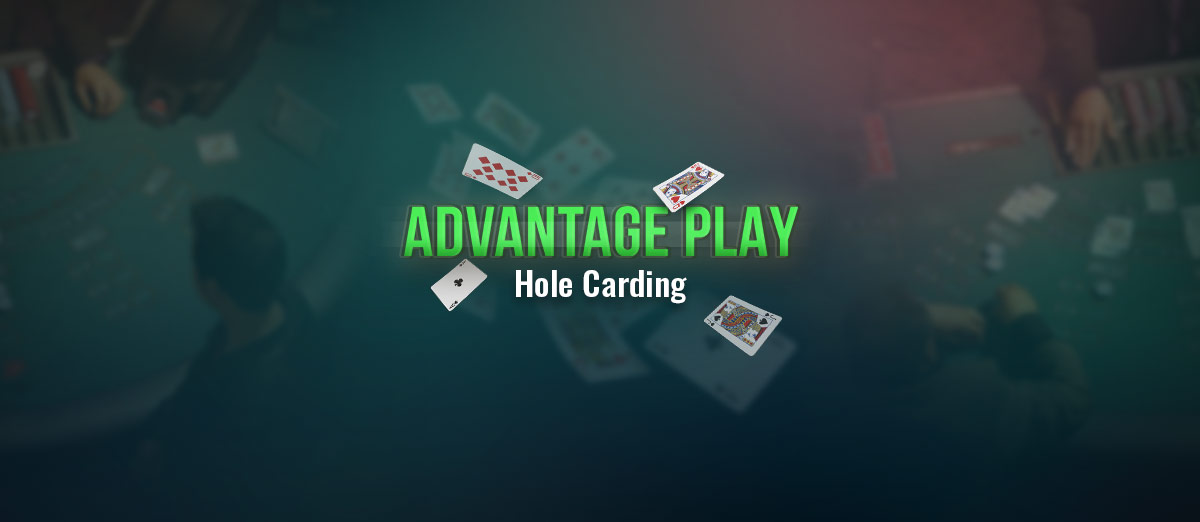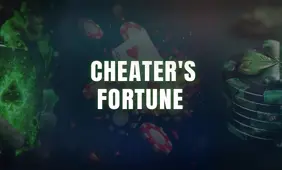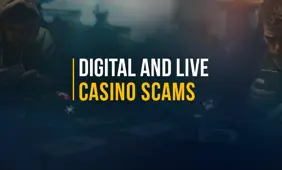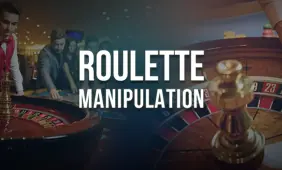Hole Carding – The “Art” of Digging for Holes

Imagine finding a game where the casino offers players an opportunity that’s technically within the law but skirts the line between being an advantage play technique and cheating the casino blind. Welcome to the not-so-fine art of hole carding.
What Is Hole Carding
If you’ve seen the movie Casino (and if not, why not?), then you’ve seen how this strategy played out in the bad old days of mob and cowboy-operated gambling houses. In the film, a bookish player beats the dealer consistently without any obvious method or identifiable playing strategy yet seems to know exactly how to play every hand with unfailing luck and accuracy.
Spotting this, mafia Casino manager Ace Rothstein leans down to check his shoes and sees that the dealer is failing to properly protect his hole card when dealing; then, he sees that a player at a nearby table is in the perfect position to spot those hole cards without the need to fuss with his loafers.
Quick as a flash from a cattle prod, that second player is dropped like a bag of bricks and dragged to the notorious ‘back room’ where casino security personnel (aka “heavies”) discover a radio-signaling device he had been using to signal his partner who is then apprehended while cashing out a boatload of chips.
A few hammer blows later and after a stark reduction in their fingers and the players are given the option of leaving with their health or their wealth. It’s a brutal scene and may accurately represent “cheater’s justice” at the hands of this kind of casino at that time in history but let me state for a fact that neither player had done anything other than taking advantage of a weak dealer or operate an unlicensed telegraph service between tables. Peeking from one table to another and operating your own personal telegram was not specifically against the law at that time, and taking advantage of freely available information was not against the rules.
Is Hole Carding Cheating – Industry Experts vs. Casinos
Players are not required to help casinos fix their playing conditions, and if the house decides to play with easily spotted marked cards, it’s their problem how much they lose before they realize they have one. That’s my personal opinion but ask a casino - or a 1970s mobster - and you’re sure to hear a different story. Worse still, a judge might be easily persuaded that peeking at cards that should be better protected is technically ‘cheating’ and send eagle-eyed players on a free long-term vacation.
A weak dealer who inadvertently exposes hole cards should be worth his or her weight in gold since we (as players) would be getting invaluable information, not to mention an unbeatable edge against the house! The house, however, is keen to portray this type of advantage as no different to the dealer being your first cousin, illegally flashing cards and while I’m confident that spooking hole cards due to weak dealers, bad procedures, or faulty equipment is perfectly legal, whether or not you can convince a judge of that fact (probably after a long period in custody) is another matter.
Much has been written on the subject, but while countless players and industry experts agree it’s not cheating, the law and the casino operators might not respect that position if it came to trial.
So, warnings aside, let’s discuss some of the methods used to secure hole card information both now and in the past.
The Old Schoolers
This isn’t a How to hole card tutorial, and I’m keen to discourage you from actively playing this type of advantage because it needs experienced players, but even sophisticated crews can get caught if they overplay their advantage (just ask those two guys from Scorsese’s movie).
Poorly trained, tired, or negligent dealers are the equivalent of four-leaf clovers, and if their cards can be sighted from a legitimate playing position such as another table or when seated at a slot machine, keen-eyed spotters can relay information to partners playing at the weak dealer’s table.
I was once roped into this kind of play, but my sight-line was constantly interrupted by passers-by or people watching the game, standing between me, the dealer, and a healthy profit. In fact, the dealer seemed to improve over time, flashed fewer cards, and it became harder to discern high cards or aces. Truthfully, I was probably just a bad spotter.
This scenario is the hardest for casinos to portray as blatant cheating, but other methods of seeing cards as they’re dealt might cross legal lines depending on local laws.
Concealed mirrors offer the player a table-level view to the cards being dealt and slid under the dealer’s hand, much the same angles as if you placed your head on the green felt for a peek every time the dealer took their hole card. To facilitate this, little upside-down periscopes have been built into matchbooks, packets of cigarettes, hollowed-out stacks of chips, smoking pipes, rings, and even bandaged hands or fingers.
An advanced version of this surfaced some years ago where a hidden video camera transmitted a big zoomed-in close-up of the dealer’s hole cards. The camera was ingeniously mounted on a device typically used for pulling palmed cards up a cheater’s sleeve, repurposed to push a tiny camera out of the player’s sleeve (under his hand) to “get the shot” then retreat back to safety.
The player caught with this contraption was forced to drop his pants, and a photograph of the device shows a cable and metal pipe network running from his wrist to his knees with a powerful transmitter taped to the player’s back. Needless to say, this proved to be a very difficult “strategy” to defend.
Sometimes the casino can unwittingly provide a perfect solution thanks to poorly designed equipment, such as an attractive dealing show with an exaggerated step between where the card exits the shoe and is slid onto the table. This step creates just enough space to expose a card’s index and for a motivated team to peek at that index using one of the methods described above.
The Modern Cheaters
Modern advantage players have an edge given that today’s cameras are so small and so easy to hide in any object or even relocate on a smartphone to get a clearer shot than the overt (typical) camera might see. Software can also read those indexes and send signals or even voice messages to hidden earpieces or a pair of expensive ear pods. In fact, it’s now so typical for us to carry advanced wireless devices that those devices represent a real danger to the industry, and casinos need to stay one step ahead both in terms of technology and imagination to consider all the ways an ordinary iPhone could be used to gain an unfair (from their perspective) advantage.
At one point, it was theoretically possible to determine the quality of a dealer’s hole card purely by reading that dealer’s body language after he or she peeked at their card, and this strategy led to specially printed cards that are slid into a tiny mirror contraption that will only reveal if the dealer has a blackjack and needs to spread his hand and collect bets.
I can also tell you that cards can be marked entirely by the order of the play, and a powerful winning strategy was developed based on this system which is now - unfortunately - mostly outdated.
This method was much the same as hole-carding in terms of return and a lot harder to detect if the player concealed the strategy correctly and rotated with other bettors.
More about that another time, but for now, if your dealer has a habit of leaking their hole cards and you choose to take advantage, know the dangers and get out before you get caught.
Read more:








Review this Blog
Leave a Comment
User Comments
comments for Hole Carding – The “Art” of Digging for Holes